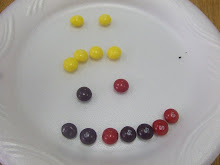In O’Neill’s Long Day’s Journey into Night, setting plays an integral role in the dynamics of the Tyrone family. James Tyrone is always too cheap to purchase a home for his family, so they travel from cheap hotel to cheap hotel, spending the summers in the Tao House. This constant sense of upheaval and temporary stays leaves Mary Tyrone feeling as if she never has a home. It creates yet another point of contention between her and James; his frugality has not only affected his family health-wise, but mentally as well. The darkness of the Tao House due to James’s constant extinguishing of the lights to save money is representative of the feelings of each member of the Tyrone family. They are depressed, trapped in a never-ending cycle of disappointment, and do not see any light at the end of the tunnel to provide them with hope. James has always been miserly, even when it comes to the health and well-being of his wife and children, and he always will be. Mary sees herself as a failure and feels that her time to change has passed her by. Jamie and Edmund do not have any example from their father to live up to and feel like failures even as young men. In these ways, the tentativeness and darkness of the Tyrone family’s housing situation are the root causes of much of their discontentment in life.
O’Neill’s Long Day’s Journey into Night contains a strong paradox between James Tyrone and his elder son, Jamie. As James’s son, and especially as his first son and namesake, Jamie feels the need to live up to his father and even exceed his success, yet he has very little to aspire to. James’s various failures and shortcomings give Jamie very little hope for his own future since he is so much like his father; it is this very similarity that causes so much disagreement and turmoil between the two. James sees his son following the same path as he did, and does not wish to see this replication of himself as it brings him shame and regret. These feelings of failure and hopelessness lead both men to see in the other what they do not want to be; even as that is their reality, they are not able to face it.
Subscribe to:
Post Comments (Atom)

No comments:
Post a Comment